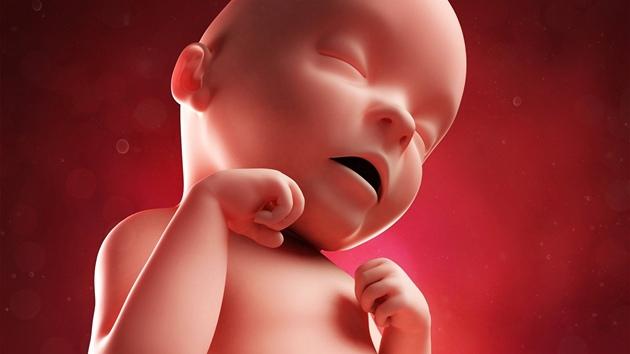
A fifth of pregnancies end in abortion. The cause can be infection or genetics
There can be a number of reasons for a spontaneous or self-inflicted abortion. Common culprits are immunological diseases, hormonal causes, infections, chronic diseases, but also external influences in the form of smoking, alcohol or drugs.
Myths about abortion: it is unusual, stress is to blame, it portends other problems |
However, behind the largest percentage of miscarriages are genetic abnormalities, which often result in chromosomal defects of the fetus. The causes of these complications cannot in any case be sought only on the part of women.
The quality of male sperm or the mutual genetic "interplay" of both partners can contribute to them to the same extent. However, you can only find out what the real reason for spontaneous abortion is through a medical examination.
When chromosomes don't fit
Chromosomes are blocks of genes stored in the nuclei of all cells. "Each person has 23 pairs of chromosomes, one of which always comes from the mother and the other from the father. A mature sex cell, whether it is an egg or a sperm, always carries half the number of chromosomes, because the pairing takes place during conception," explains Kateřina Veselá, doctor and director of the Repromeda reproductive clinic.

Problems arise if the sperm or egg from which the embryo was created has a larger or smaller number of chromosomes. In such a case, the woman will become pregnant, but there is a high risk that she will lose the fetus. If a miscarriage occurs repeatedly, it is appropriate to visit a specialist, who will reveal the causes with the help of genetic tests.
Artificial insemination can be a suitable solution for repeated miscarriages. A large number of women who have gone through these difficulties do not even think about the possibility of IVF, because they do not have a problem with pregnancy, but with delivering a baby.
IN IMAGE: Watch a human fetus prepare for birth |
"However, at the reproductive clinic, we can solve a number of reproductive problems, including repeated miscarriages. In such a case, it is advisable to use the method of pre-implantation genetic testing, on the basis of which a healthy and most promising embryo can be selected for transfer to the uterus. This minimizes the risk of a subsequent miscarriage," explains the doctor.
Don't be afraid to ask for help
At the same time, according to doctor Veselá, each abortion greatly increases the probability of another abortion. After two unsuccessful attempts, the risk of a third miscarriage is up to 25 percent, for the fourth it is almost fifty percent. In such a situation, it is not a good idea to postpone solving problems and it is appropriate to see a doctor as soon as possible.
At the same time, it is not only a gynecologist, in the event of the loss of an expected baby, it is not out of place to ask for help from a psychologist or therapist as well. Abortion is one of the most emotionally demanding situations that can occur in life.
Miscarriage is more common than you think. Rainbow babies give parents hope |
The so-called silent pregnancy can be particularly insidious. An unsuspecting woman, who is convinced that everything is going as it should, often finds out about her loss only during an ultrasound examination from the mouth of a doctor who can no longer see movements or heart sounds.
"Abortion is an extremely psychologically demanding experience for a woman. However, it is mental balance that is essential to the future achievement of the goal of conceiving a healthy offspring," explains doctor Kateřina Veselá.
"It is important not to blame yourself for the misfortune, because in the vast majority of cases the woman could not influence the situation in any way. However, if the miscarriage is repeated, we definitely recommend seeking professional help," he adds.
Have you ever had an abortion?
Total votes: 1580Voting has ended
Readers have voted until 00:00 on Thursday, November 18, 2021. The poll is closed.
Yes, but only once617Yes, repeatedly606Never357






